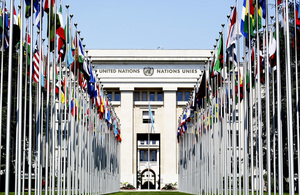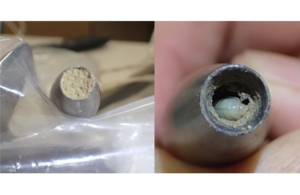Holocaust Memorial Day 2022: UK statement at OSCE
Mr Chair,
I would like to express my thanks to you, Dr Meyer, for your introductory comments, and your work as Secretary General of International Holocaust Remembrance Alliance (IHRA).
Eighty years ago, on a cold day in January, top-ranking Nazis gathered in a House by a lake on the outskirts of Berlin at Wannsee to discuss the exploitation and mass murder of Jewish people. Under the euphemism of the Final Solution, children would die alongside their parents and grandparents. No one would be spared.
Today, across the globe, there are malicious people who actively deny the historic reality of the Holocaust and seek to minimise the extent of the atrocities committed against the Jewish people by the Nazis and their accomplices during the Second World War.
Distortion of the Holocaust comes from various sources and is not unique to one particular world-wide view. It can be found on both the right and left of the political spectrum, across religious and ethnic lines, and is also informed, in part, by a broader culture of denialism in present-day discourse.
Denying and distorting the Holocaust is a form of antisemitism; we must not stand by when others revise history to erase the horror of the mass murder of Jewish people.
Antisemitism is vile. The UK Government is clear that victims should be supported, and that cowards who commit hateful antisemitic attacks should feel the full force of the law.
We have a longstanding track-record of standing up for the rights of members of all faiths and beliefs internationally, including Jews. Through a Network of Liberty, the UK will continue to combat this abhorrent ideology in all its repugnant forms.
We must promote fact-based knowledge about the history of the Holocaust and strengthen media and information literacy.
We welcome that at last year’s Malmö Forum, countries worldwide pledged to take concrete steps to further Holocaust remembrance and combat antisemitism. That landmark conference came twenty years after the Stockholm Forum on the Holocaust laid the foundation for contemporary action on Holocaust education, remembrance and research. The UK will chair the International Holocaust Remembrance Alliance in 2024. In 2025, the UK will open a new national Holocaust Memorial and Learning Centre to stand as a constant reminder of why we must be relentless in the fight against Holocaust denial and antisemitism.
Mr Chair,
The UK was proud to recently cosponsor the historic UN resolution to combat holocaust denial that was brought forward by Israel and Germany. Together we must continue to stand against antisemitism in all its forms and reject any attempts to deny the facts of the holocaust.
We encourage participating States to adopt the Alliance’s working definition of antisemitism.
Mr Chair,
Each year on Holocaust Memorial Day, we remember the six million Jewish men, women and children murdered during the Holocaust. We remember the thousands of Roma, Sinti, and other victims of Nazi persecution, including LGBT+ and those with disabilities. We remember the victims of other genocides.
It is also a day when we imagine a world free from genocide; a world which has fully recognised where hatred and intolerance, prejudice, and antisemitism can lead.
Thank you Mr Chair

